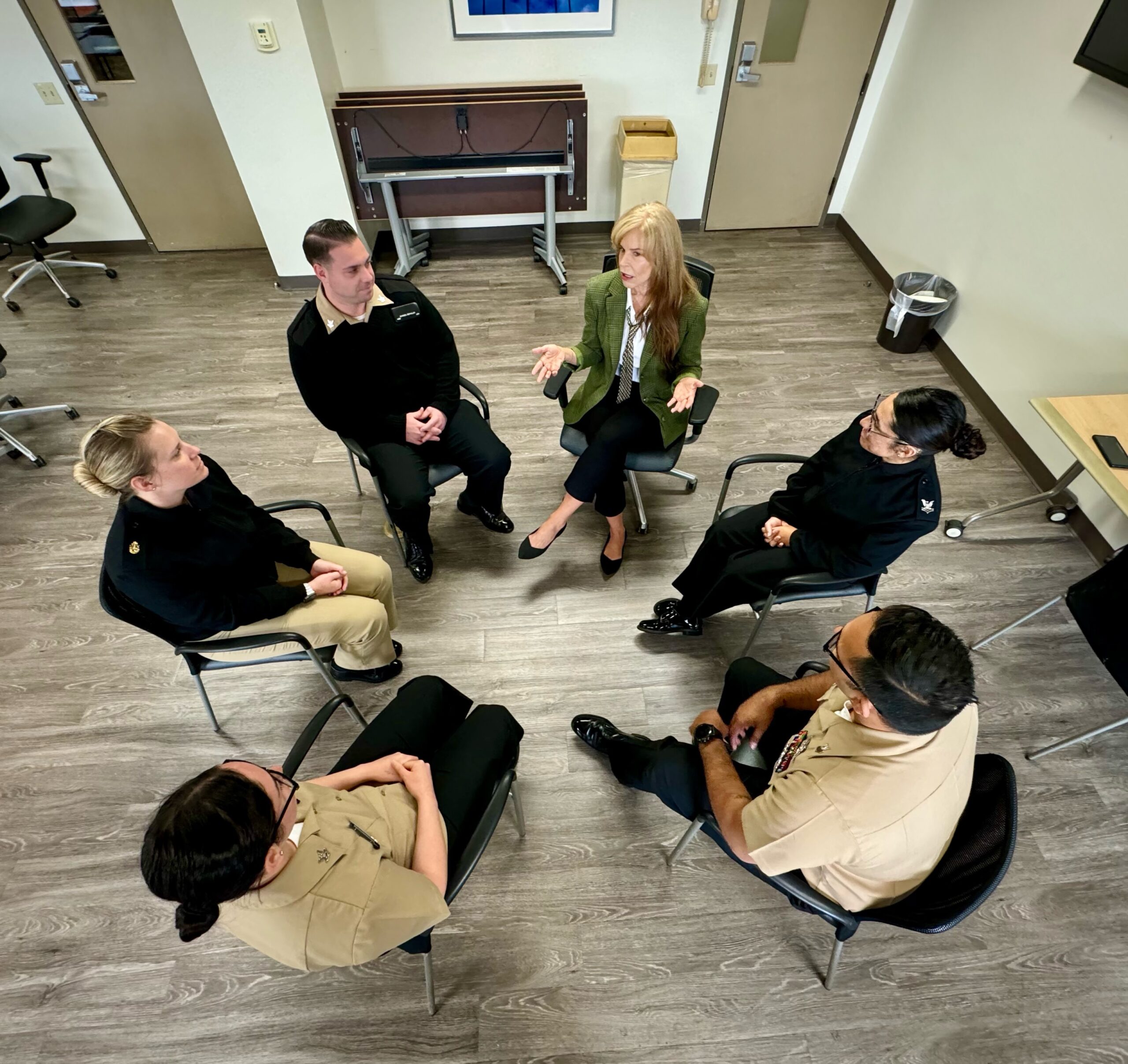In recognition of Mental Health Awareness month, I am excited to share this article on the benefits of group psychotherapy on Health.mil, the official website of the Military Health System. For over 15 years, I have been conducting group therapy and have found it to be one of the most rewarding and effective ways to help people. Recently I asked some friends, all of whom have had previous therapy, to share their thoughts on group therapy. Even among those who understand the benefits of individual therapy, there were doubts about group therapy.
I recall that when I was a psychologist in training, I also had suspicions about group therapy and, given the choice, I might have opted out. Fortunately, my doctoral training and clinical supervisors made this valuable treatment a requirement. Many healthcare systems are moving towards group therapy as a first line of mental health treatment. Whatever your objections may be, they are normal. The best way to address the unknown, is with accurate information. Here are the three most common myths about group therapy.
1. “I won’t be able to share my true feelings in a group setting.”
Many people fear that group therapy won’t allow them to share openly about their thoughts and feelings. However, before each group session, the rules are laid out clearly, and everyone agrees to abide by them. This creates a supportive and confidential environment where everyone can share at their own comfort level. Participants often find that they can express themselves more freely over time as they build trust within the group. The experience of building trust with a group of people you did not choose to be with is very powerful.
2. “It’s not as good as individual therapy.”
Another common myth is that group therapy is less effective than individual therapy. On the contrary, research consistently shows that group therapy can be just as effective, if not more so. One of the most significant benefits of group therapy is the sense of community and support it provides. Participants often find comfort in knowing that others are experiencing similar struggles. This shared understanding can be incredibly empowering and foster a sense of belonging. Plus, group therapy is led by a trained professional who ensures that everyone feels safe and respected, and that the sessions are productive and supportive. The structured environment allows participants to share at their own pace, creating a comfortable space for personal growth.
3. “I’m not ‘that’ bad!”
It’s completely normal to have reservations about group therapy, especially if you’re new to the experience. Many people worry that they don’t have significant enough issues to warrant group therapy or fear speaking in front of others, especially about deeply personal experiences. However, it’s important to understand that group therapy isn’t just for those with severe problems. Everyone in the group is there for the same reason – to receive support and work through challenges together. In my experience as a facilitator, I’ve seen how sharing and listening in a group setting can normalize and validate individual experiences, making participants feel less isolated and more understood. You might be surprised by the wisdom that each of us has to offer.
The Power of Group Therapy
For many of us, our work requires teamwork, and we don’t get to choose our co-workers. Groups help us learn to actively listen, interpret non-verbal cues, and be present when others are sharing. This form of therapy strengthens our natural inclination to come together and support one another. While it might seem intimidating at first, it’s important to remember that you’re not alone. In group therapy, we learn that together, we can overcome most challenges.

